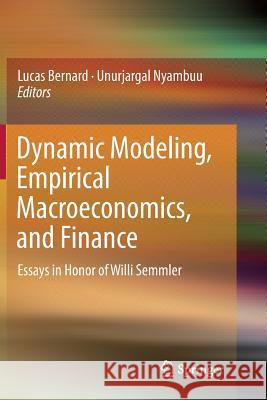Dynamic Modeling, Empirical Macroeconomics, and Finance: Essays in Honor of Willi Semmler » książka
topmenu
Dynamic Modeling, Empirical Macroeconomics, and Finance: Essays in Honor of Willi Semmler
ISBN-13: 9783319819891 / Angielski / Miękka / 2018 / 325 str.
Dynamic Modeling, Empirical Macroeconomics, and Finance: Essays in Honor of Willi Semmler
ISBN-13: 9783319819891 / Angielski / Miękka / 2018 / 325 str.
cena 401,58
(netto: 382,46 VAT: 5%)
Najniższa cena z 30 dni: 385,52
(netto: 382,46 VAT: 5%)
Najniższa cena z 30 dni: 385,52
Termin realizacji zamówienia:
ok. 22 dni roboczych
Dostawa w 2026 r.
ok. 22 dni roboczych
Dostawa w 2026 r.
Darmowa dostawa!
Kategorie:
Kategorie BISAC:
Wydawca:
Springer
Język:
Angielski
ISBN-13:
9783319819891
Rok wydania:
2018
Wydanie:
Softcover Repri
Ilość stron:
325
Waga:
0.47 kg
Wymiary:
23.39 x 15.6 x 1.8
Oprawa:
Miękka
Wolumenów:
01
Dodatkowe informacje:
Wydanie ilustrowane











